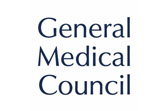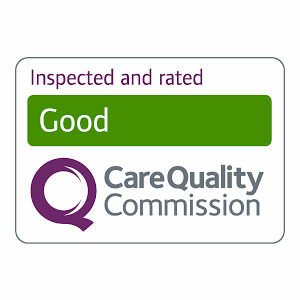What Are Polynucleotides?
28563 by Omniya Clinic
Perimenopause is a natural phase in a woman’s reproductive life cycle. During this time, ovarian function gradually declines, leading to reduced oestrogen levels. This phase can last for several years until menstruation ceases entirely, marking the onset of menopause.
Perimenopause typically begins in a woman’s 40s but can start earlier. Symptoms often include irregular periods, hot flushes, and mood swings. Factors such as genetics, lifestyle, and environment can influence the timing and severity of symptoms.

Symptoms can vary widely among women and may include:
Perimenopause can last for several years, and knowing the signs that it is ending can help you prepare for menopause. Common signs include:
Irregular Menstrual Cycles
Periods become more irregular and eventually stop. If you haven’t had a period for 12 consecutive months, you have reached menopause.
Overall Symptom Reduction
A decrease in the intensity and frequency of perimenopausal symptoms.
Stabilised Hormone Levels
Hormonal fluctuations become less erratic, though lower oestrogen levels remain.
Each woman’s experience is unique, and the duration and intensity of symptoms can vary widely. For personalised advice, book a consultation with one of our practitioners.
Regular physical activity improves mood, promotes better sleep, and aids in weight management. Activities like walking, swimming, yoga, and strength training are beneficial.
A balanced diet rich in fruits, vegetables, whole grains, and lean proteins supports overall health and hormone balance. Foods high in calcium and vitamin D help maintain bone health, while omega-3 fatty acids reduce inflammation and improve mood.
Techniques like mindfulness, meditation, and yoga reduce anxiety and improve emotional well-being. Deep breathing exercises and engaging in hobbies can help manage stress effectively.
Establishing a regular sleep routine and a comfortable sleep environment is crucial. Go to bed and wake up at the same time every day. Create a calming pre-sleep routine, keep the bedroom cool and dark, and avoid screens before bedtime.
Personalised supplements support hormonal balance and alleviate symptoms. Recommended supplements include:

We specialise in diagnosing and arranging perimenopause tests, finding the best approach for you to overcome perimenopause symptoms.
Based on the test results, we will have a clear picture of your hormonal balance, enabling us to customise treatment plans for you. Our treatments include, but are not limited to:
Perimenopause typically lasts about 4-10 years, with the average duration being around 4 years. The duration can vary significantly among different women.
Perimenopause can affect fertility. As women approach menopause, their ovarian function declines, leading to irregular ovulation and decreased fertility. While pregnancy is still possible during perimenopause, the likelihood decreases as fertility declines. It’s important for women who wish to conceive during perimenopause to discuss their options with a healthcare provider and consider fertility treatments if necessary.
Yes, perimenopause can lead to mood swings, anxiety, and depression in some individuals. Hormonal fluctuations during this time can significantly impact mental health.
Maintaining a healthy diet, regular exercise, stress management, and avoiding smoking and excessive alcohol can help alleviate symptoms. These lifestyle changes support overall health and well-being during perimenopause.
If symptoms interfere with daily life or if there are concerns about reproductive health or overall well-being, consulting a healthcare provider is advisable. Early intervention can help manage symptoms more effectively.
Menstrual changes during perimenopause may include irregular periods, heavier or lighter bleeding, or skipped periods. These changes are due to fluctuating hormone levels.
Risks include osteoporosis, heart disease, and certain cancers. Regular check-ups and screenings are important for monitoring health and managing potential risks.
Hormonal tests for perimenopause include assessing oestrogen, progesterone, FSH, and LH levels through a perimenopause blood test. These tests help evaluate hormonal balance and guide treatment.
During perimenopause, women may gain approximately 1.5kg per year, primarily around the abdomen and upper body, due to hormonal changes and slowed metabolism. This weight gain can increase the risk of other health issues.
Yes, reduced oestrogen levels can lead to joint pain and stiffness, as oestrogen has anti-inflammatory properties. Managing oestrogen levels can help alleviate joint discomfort.
Regular exercise can improve mood, promote better sleep, aid in weight management, and reduce the risk of osteoporosis and heart disease. It also helps maintain muscle mass and bone density.
A balanced diet rich in fruits, vegetables, whole grains, lean proteins, calcium, and omega-3 fatty acids can support overall health and hormone balance. Avoiding processed foods and sugars is also beneficial.
Stress management techniques like mindfulness, meditation, and yoga can reduce anxiety, improve emotional well-being, and help manage perimenopause symptoms. These practices promote relaxation and mental clarity.
Yes, it’s important to monitor for conditions like osteoporosis, heart disease, and certain cancers through regular check-ups and screenings. Early detection and management can mitigate risks.
Supplements can support hormonal balance and help alleviate symptoms associated with perimenopause. It is important to receive personalised recommendations from a healthcare practitioner to ensure both safety and effectiveness.
Yes, women may experience memory lapses, difficulty concentrating, and “brain fog” due to hormonal fluctuations during perimenopause. Cognitive function typically improves post-menopause.
A perimenopause blood test involves drawing a small sample of blood from a vein, which is then analysed in a laboratory to measure levels of key hormones such as oestrogen, progesterone, FSH, and LH. This helps assess hormonal status.
Advanced diagnostics, such as ultrasound scans, provide detailed information about ovarian function and endometrial health. They help identify structural changes or abnormalities and guide appropriate treatment plans.













During your consultation, we will advise you on the best treatments and products to use at home.
*Available with participating practitioners



If you are an existing patient, we kindly request that you email your request through to hello@omniya.co.uk rather than filling out the contact form.
"*" indicates required fields